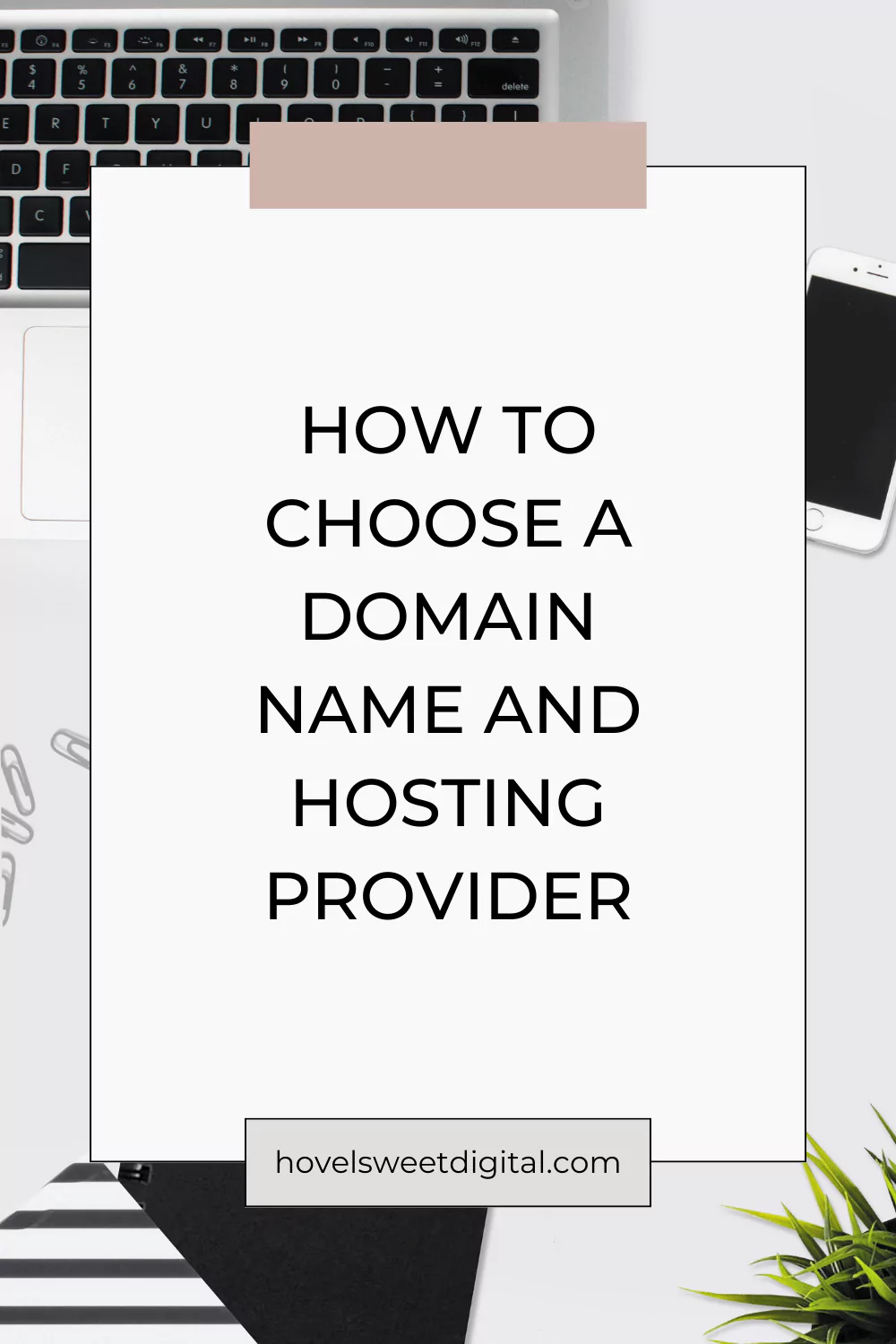Choosing a domain name and hosting provider is an important step when creating a website. Here are some factors to consider when picking a domain and host:
Picking a Domain Name
Before purchasing your domain name, consider comparing prices, features, and any additional services offered by these registrars. It’s also important to check if your desired domain name is available and to consider factors like domain transfer policies, renewal fees, and customer support.
- Branding: Choose a domain name that aligns with your brand or website purpose. It should be memorable, unique, and reflect your website’s content or business.
- Simplicity: Keep the domain name concise and easy to spell and pronounce. Avoid using numbers, hyphens, or unusual spellings that can confuse visitors.
- Extension: Consider which domain extension (e.g., .com, .org, .net) best suits your website. Generally, .com is the most popular and widely recognized.
- Legalities: Check for trademark conflicts and make sure your chosen domain name doesn’t infringe on any existing brands.
Purchasing a Domain Name
There are several reputable domain registrars where you can purchase your domain name. Here are some popular options:
- IONOS
- Google Domains
- Namecheap
- Domain.com
- Lyrical host
- NameHero
- Hover
- BigScoots
- Indigoblu.co
- Cloudways
- a2hosting
- Iwantmyname.com
Selecting a Hosting Provider
The best hosting provider for you will depend on your specific needs, budget, and preferences. Different hosting providers offer varying features, pricing plans, and levels of customer support.
When choosing a hosting provider, consider factors such as your website’s requirements, anticipated traffic levels, budget, and the level of technical expertise you possess. It’s a good idea to read reviews, compare features and pricing, and check for any specific requirements or limitations that may affect your decision.
- Reliability and Uptime: Look for a hosting provider that guarantees high uptime (ideally 99.9% or higher) to ensure your website is accessible to visitors consistently.
- Speed and Performance: Hosting servers should deliver fast page loading times for a smooth user experience. Look for providers with reliable and optimized infrastructure.
- Scalability: If you anticipate your website growing in terms of traffic or content, consider a hosting provider that offers scalable solutions, such as VPS or cloud hosting.
- Customer Support: Ensure the hosting provider offers reliable customer support, preferably 24/7, through various channels (live chat, email, phone) to address any issues or questions.
- Security: Look for a host that provides robust security measures, such as SSL certificates, regular backups, and malware protection, to safeguard your website and visitor data.
- Pricing: Compare hosting plans and pricing structures to find one that fits your budget. Be cautious of extremely low-cost options, as they may come with limited features or poor support.
It’s a good idea to read reviews, seek recommendations from trusted sources, and compare features and pricing before making a final decision. Some popular hosting providers include Bluehost, SiteGround, Ionos, and DreamHost, but there are many others available based on your specific needs.
Remember, you can register your domain separately from your hosting provider, so you have the flexibility to choose the best options for each aspect independently.
Why I Picked IONOS
IONOS has a robust hosting infrastructure with state-of-the-art data centers and advanced technology. They have a strong reputation for providing reliable hosting services, ensuring that your website stays online and accessible to your visitors.
IONOS offers a range of hosting plans that cater to different needs, from small personal websites to large-scale business websites. As your website grows, you can easily upgrade your hosting plan to accommodate increased traffic and resource requirements.
IONOS provides a user-friendly control panel that makes it easy to manage your hosting account, domains, email accounts, and other services. The control panel offers a simple interface with intuitive navigation, allowing you to set up and manage your website efficiently.
If you’re planning to build your website with WordPress, IONOS offers specific hosting plans optimized for WordPress. These plans come pre-installed with WordPress, offer enhanced performance and security features, and provide seamless integration with WordPress plugins and themes.
IONOS offers customer support services to assist you with any technical issues or questions you may have. They provide support through various channels, including phone, email, and live chat, ensuring that you can get help when you need it.
Ultimately, the choice of hosting provider depends on your specific requirements and preferences. It’s a good idea to compare different hosting providers, consider your website’s needs, and read reviews to make an informed decision.
Cheers,
Katie
Pin This For Later!







